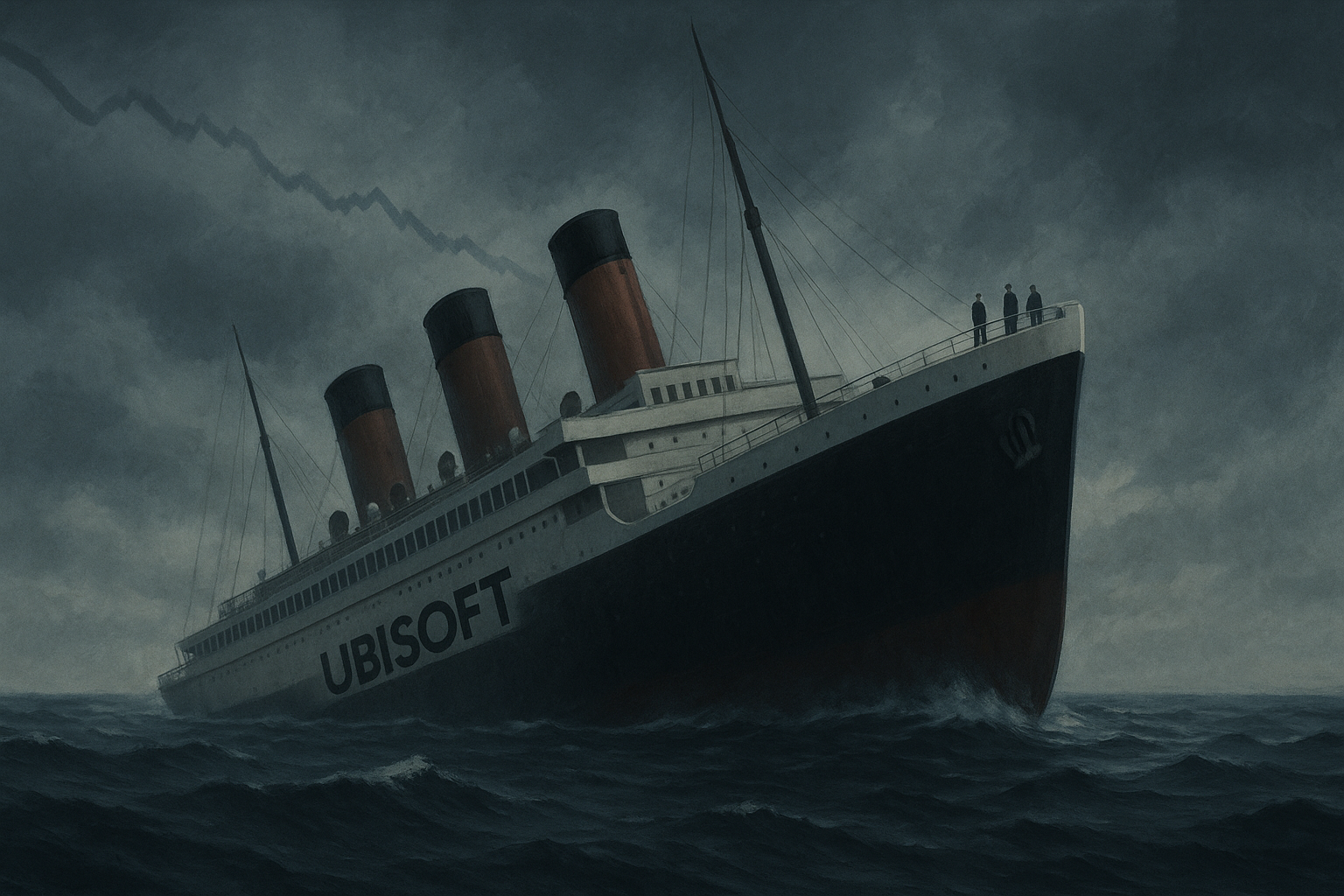Watching Ubisoft's stock price these days feels a bit like witnessing someone slowly sink into quicksand. The latest 6.3% drop—from €8.92 to €8.36 in just two weeks—might not sound catastrophic until you remember we're talking about a company already trading at roughly a quarter of what it was worth at its 2018 peak.
I've been covering gaming stocks since 2017, and there's something almost mesmerizing about this particular downward spiral. It's not dramatic enough to make headlines (no sudden 30% crashes here), but persistent enough to make investors gradually lose whatever faith they had left.
The weird thing? There's no smoking gun. No massive scandal. No earnings call where the CEO accidentally revealed they've been cooking the books. Nothing.
Instead, what we're seeing is something I like to call "death by a thousand cuts" syndrome. Each underwhelming game launch chips away at investor confidence. Every development delay reinforces the narrative. The cycle feeds itself—less market faith means tighter budgets, which leads to more rushed games, which... well, you get it.
Remember "Skull and Bones"? Good lord. That pirate game spent so long in development it practically qualified for a maritime pension before finally launching to the sound of crickets. Almost a decade of work for what amounted to a collective shrug from gamers and critics alike.
Then there's "Star Wars Outlaws." Having a Star Wars license should be like having a money printer, but Ubisoft somehow managed to release a game that made players say, "Eh, it's fine, I guess." When you're working with one of the most beloved franchises in entertainment history and "fine" is the best you can do... Houston, we have a problem.
(And don't get me started on those watered-down Assassin's Creed entries. The franchise that once revolutionized historical action games now feels about as fresh as week-old bread.)
What makes this situation particularly frustrating—especially for longtime industry watchers—is that Ubisoft still has incredibly valuable IP in its portfolio. Assassin's Creed. Far Cry. Rainbow Six. Tom Clancy's... everything. These are franchises with dedicated fan bases that many publishers would kill for.
The problem isn't what they own. It's what they do with it.
And then there's the leadership question. CEO Yves Guillemot has maintained his grip on the company despite gestures broadly at everything. The family-controlled ownership structure means he's about as removable as a Supreme Court justice, creating exactly the kind of entrenched leadership that tends to resist necessary change.
Look, it's not like the entire gaming industry is struggling. Microsoft's gaming division is growing. Take-Two keeps printing money with Grand Theft Auto. Even EA—a company gamers love to hate—maintains relatively stable performance.
So what happens next?
At some point, Ubisoft becomes such an obvious acquisition target that someone pulls the trigger. The company's intellectual property alone is worth more than its current market cap would suggest. There's a certain irony there—the worse they perform, the more attractive they become to potential buyers looking for a bargain.
The question is whether management can right the ship before someone else decides to take the wheel. Based on recent history... I wouldn't bet my kid's college fund on it.
Sometimes in markets, as in gaming, you have to hit rock bottom before you can respawn. For Ubisoft investors wondering if we've finally reached that bottom—sorry, but it seems there's still a basement below the basement.
And frankly, nobody knows how deep it goes.
